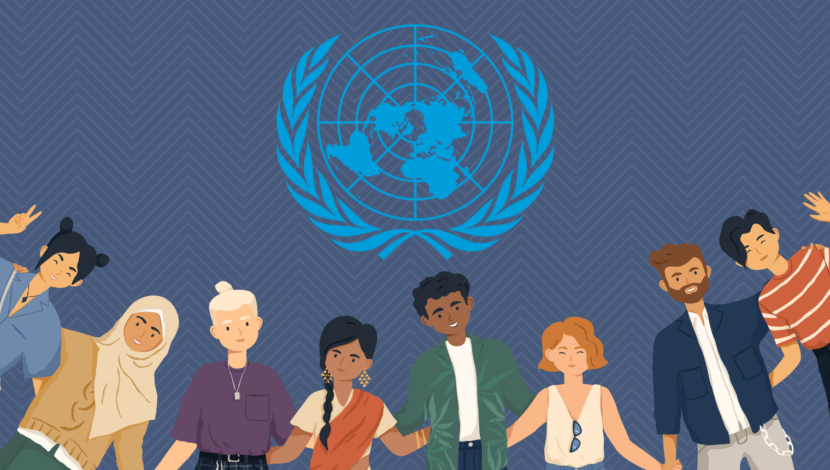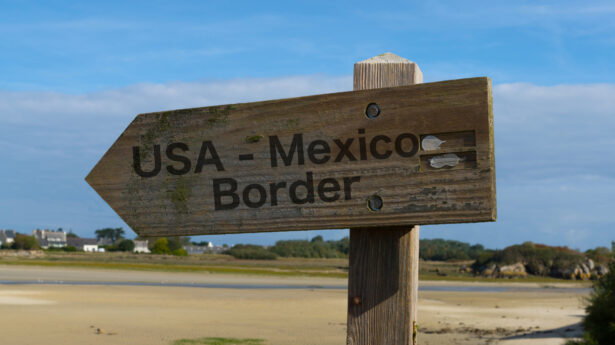The Unitarian Universalist Service Committee advances human rights through grassroots collaborations.
The Climate Crisis: Imagining a Bold Path Forward

October 13, 2022
For 14 years, the Climate Group—an international coalition of businesses, nonprofits, and governments committed to reducing greenhouse gas emissions and staving off the effects of global warming—has sponsored Climate Week in New York City. This annual gathering happens alongside of—but separate from—the United Nations General Assembly. This year the events were organized around the theme, “Big Ideas, Bigger Actions.”
It felt good to attend this gathering with UUSC Director, Global Advocacy Salote Soqo and Vice President Rachel Freed, supporting some of the side events highlighting the work of UUSC partners and others working with a focus on climate justice and just funding for communities impacted by the climate crisis.
UUSC’s theory of change—our approach to cultivating progressive evolution through our partnership model in alignment with our values and commitments to human rights—helps compliment the bold and big path forward Climate Group has envisioned for the world.
“The Duty of Philanthropy in Advancing Climate Justice”
In this 90-minute panel discussion, Lourdes Inga, the executive director of the International Funders for Indigenous Peoples (IFIP) and Monica Atkins, the executive director of the Climate Justice Alliance, shared a vision of the dramatic impact possible when funders decolonize their practices and truly embrace economies that heal and sustain communities. Along with Heather McCray of the Climate Justice Resilience Fund (CJRF) and Rachel, the panelists at this side event offered tangible ways foundations and other international NGOs can develop practices creating change from the inside out.
Heather spoke about projects and grants, “driven by the field, not by funders” as a way of emphasizing the importance of grassroots solutions. CJRF has created a panel of youth activists who are making grant decisions for a portion of the Fund’s grants. In addition, CJRF is working with governments to help redistribute wealth as an accountability action for harm caused to communities.
Rachel shared UUSC’s work examining the ways we hold our resources and shifting to less extractive investment practices and policies that move money faster. Rachel acknowledged that as a small organization, UUSC’s evolving practices alone will not change the world, but we are committed to working with our networks to encourage and support change across the sector.
Sailing for Climate Justice: A Multi-Stakeholder Perspective on the Campaign for an ICJ Advisory Opinion on Climate Change
A second wonderful example of how grassroots organizations lead—even in the context of the institutionalized power of the United Nations—is the work of the campaign to encourage the International Court of Justice (ICJ) to provide an advisory opinion on addressing the impacts of climate change. This effort, led by UUSC partner the Pacific Islands Students Fighting Climate Change (PISFCC), aims to clarify international law about the obligation of nations in protecting the human rights of future generations. Or as they also put it, they are, “bringing the world’s biggest problem to the world’s highest court.”
It’s an idea conceived in a law classroom in Fiji at the University of the South Pacific, networked through youth movements in the Pacific Islands and beyond, and brought to Climate Week in New York. Later this month, the campaign will be brought up for consideration by the United Nations. It’s a big idea with the potential for an even bigger impact.
Seeking Justice and Remedy for Communities Facing Climate-Forced Displacement
The third side event we co-facilitated featured a panel of four global activists facing the devastating impacts of climate change at home while organizing to access the levers of change available through international advocacy. UUSC’s Director of Advocacy, Global Displacement Salote Soqo began the conversation asking each panelist to share something precious about their home.
Elder Rosina Philippe—of the Atakapa-Ishak/Chawasha Tribe—from southern Louisiana’s Grand Bayou Village, called home paradise and explained that the love she has for home is what inspired her to join the work of engaging a special rapporteur to investigate human rights issues faced by some tribes in the U.S. “We are the First People of this land, and the last to be considered,” in conversations about change, she said.
Elder Chief Shirell Parfait-Dardar—a member of the Grand Caillou/Dulac Band of Biloxi-Chitimacha-Choctaw Tribe—from Chauvin, Louisiana, works for change for the children, that they may know home as she has in her own sacred relationship with the world. Solomon Yeo, campaign director for UUSC partner PISFCC, was part of the small group that imagined bringing, “the world’s biggest problem to the world’s highest court.”
Hemavathi Shekar, a member of UUSC partner the Loss and Damage Youth Coalition (LDYC), shared her disappointment in the United Nations’ failure to see the whole of our eco-system and consider accountability when addressing climate issues.
Salote reminded all of us that home and justice are connected. This is why a human rights lens in our response to the climate crisis is essential. As UUSC and its members partner with communities around the world, we will remain faithful to the principles of a just and equitable solution to the climate crisis.
###
These panel discussions vividly illustrate UUSC’s theory of change. We are proud to be associated with these partners who are carrying a tremendous vision of another world to the seats of another kind of power.
Participating in the events happening around town, engaging grassroots leaders, and learning more about their collective vision were vital for me as UUSC continues this work. In a world that often marginalizes those without access to traditional forms of power, it was invigorating to be in community with these groups and to listen to first-hand accounts of what’s needed to advance a justice-centered human rights agenda. Power from the “margins” is what always creates change; the undeniable and palpable pressure exerted from the outside in helps move us towards a just world. Experience and wisdom from impacted communities is what always inspires effective solutions and I’m proud of UUSC’s work to serve those communities as we move this work forward.
Image Credit: United Nations

